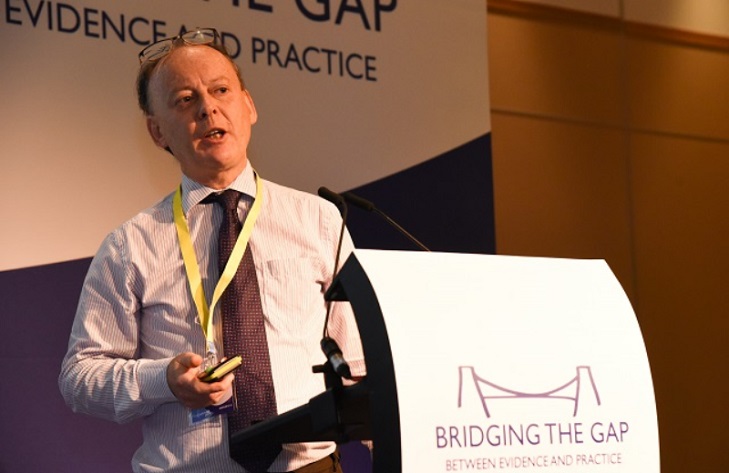
Professor Adrian Davis has been appointed by Edinburgh Napier University as a professor of transport and health – a move described by the university as ‘groundbreaking’.
Professor Davis, who will be based at the Transport Research Institute – Scotland’s largest academic transport group – will ‘seek to raise awareness and understanding of the many connections between road transport and health’.
During 2018/19 academic year, professor Davis will be focusing on a series of transport and health related topics – from the language used to describe road collisions to the quality of the air in towns and cities.
Professor Adrian Davis was the author of the British Medical Association’s first report on road transport and health, published in 1997. He is also a founding editor of the academic Journal of Transport & Health, and adviser to the World Health Organisation.
Prior to taking up his new post, he was a visiting professor at the University of West England and is the man behind a series of ‘essential evidence’ summaries, published by Travel West.
Later this year, professor Davis will speak at the 2018 National Road Safety Conference, talking about the importance of evidence in the development of road safety interventions. It will be the second time he has presented at the event, having previously featured at the 2016 conference in Bristol.
Edinburgh Napier University says professor Davis comes to the post – believed to be a world-first – ‘with a track record of more than 30 years work in helping to develop and grow this inter-disciplinary field’.
Speaking of his appointment, professor Davis said: “I relish the opportunity to help accelerate the science, translation and collaboration on road transport and health.
“In particular I hope to assist Scotland’s practitioners in the fields of transport planning and public health in achieving more through greater understanding and the synergies that then arise from greater collaboration.”
Professor Tom Rye, director of the Transport Research Institute, said: “We are very pleased to have created what we believe to be a world-first in this cross-disciplinary post, and very happy indeed to welcome Adrian to the TRI team.
“The links between transport and health are strong and irrefutable and of increasing interest to policy makers, and with Adrian’s appointment we are well-positioned to make an important contribution to developing new knowledge in the area, and applying it.”
Any particular cost-effective ways in mind Charles, bearing in mind there’s many thousands of miles of urban roads in the UK? It’s all very well knocking someone else’s efforts, but at least come up with an alternative.
Hugh Jones
+1
Rod, that sounds like an accusation that the delegates have closed minds, and won’t accept any view that contradicts their own narrow and unfounded prejudice. That is called “confirmatory bias”, and is something to be ashamed of, not apparently proud of! You need to take your blinkers off and open your eyes to the possibility that you are wrong, and recognise that there are effective ways of making the streets safe and user friendly, and sustainably so, and that 20mph limits have no part to play in modern, safe and accessible community spaces. If anything, they give the wrong message, and perpetuate the problem.
Charles, England
--2
A new university post of Professor of Transport and Health is described as a ‘world-first’ (mentioned three times) and is also ‘groundbreaking’. Let’s not get too carried away.
Hugh Jones
--1
Charles we have had a couple of presenters who disagreed with speed limits in the past. Delegates thought their views were laughable. Their “evidence” usually turns out to be anecdotes and opinion.
Delegates prefer people who have been responsible for making streets more community friendly, implemented 20mph with engagement and education, made a success of them and can present the information on how to make them successful and the evidence to show that they are.
That’s why we have people like Professor Davis and the other presenters.
Rod King, Lymm
--2
Rod, have any of the invited speakers at that been chosen because they are known to oppose the use of speed limits as they are not an effective or sustainable way of reducing traffic speeds and making streets more community friendly? Or are all the speakers hand-picked because of their known support, in spite of all the evidence, of speed limits?
Charles, England
+3
Professor Davis will also be speaking on “20mph limits and the Prevention Paradox” at the forthcoming 20’s Plenty for Wales Conference.
The Prevention Paradox explains why small reductions in speed across a whole road network can provide far greater overall benefit to the population than larger speed reductions on specific roads. The “Prevention Paradox” is a recognised aspect of Public Health when a population-wide view is considered.
His Essential Evidence summaries are a valuable contribution to understanding the relationship between transport policies and public health.
Rod King, Lymm
+1